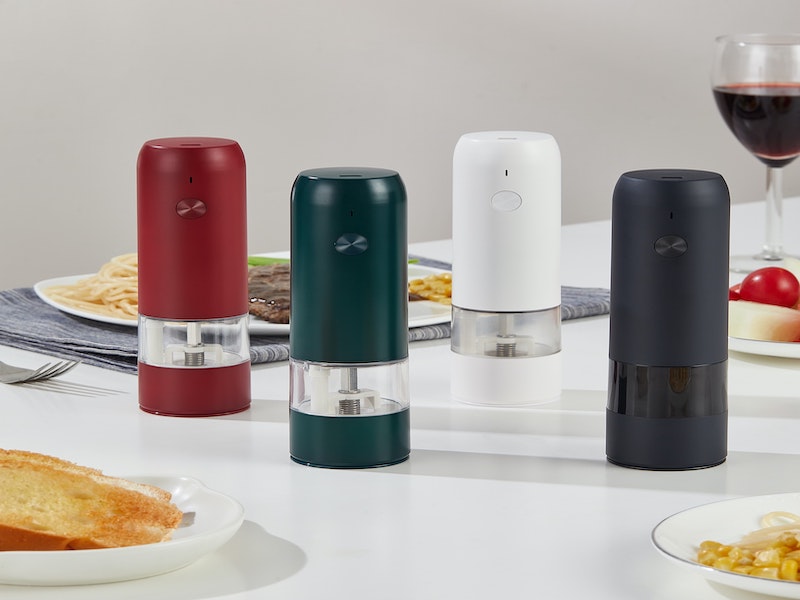What may appear to be an innovation makes us less sustainable
The humble salt and pepper grinder doesn’t appear to be all that controversial. But the basic beliefs that led to the innovation reveal how far away we are from becoming sustainable.
Sustainable product innovations should be all about making the same products with fewer material or energy inputs. So people can still buy the same products and services with decreasing reliance on the natural world.
At first glance, the electric salt and pepper grinder seems to get a solid tick in the ‘innovation’ box — you press a button and watch in satisfaction as an electrical mechanism grinds your salt and pepper for you.
Having to grind the salt and pepper manually had always been hard work, like a mini workout at a dinner table. Thank goodness the electric salt and pepper grinder has allowed us to overcome this great problem afflicting humanity.
Only that’s never been the case, has it?
The humble manual salt and pepper grinder has always done its job magnificently well. You get the desired result with a few twists of your wrist, requiring minimal effort.
Then along comes this force of innovation that replaces the need for us to input the ‘work’ required to grind the salt and pepper. Now, rather than you twisting your wrist and inputting the work to get the job done, a battery does the work for you.
So what’s the big deal?
The electric salt and pepper grinder requires an energy input from a battery. When the battery dies, it needs to be replaced, and the chemicals in the battery must be disposed of safely to ensure the toxic components don’t harm the environment. There was no problem to solve. The desire to innovate was simply to create a different product line within the market so that people would replace their perfectly functioning manual salt and pepper grinder with an electric one.
The whole point of an economy is to produce the goods and services needed by society efficiently. The origins of the word ‘economy’ can be traced to the Greek word oikonomia, which is composed of two parts, oikos or ‘household’ and nemein or ‘management’. They combine to give the word oikonomia its meaning, ‘household management’.
The ancient Greek Oikonomia and economics are similar in that any economic action aims to be efficient. But, replacing the energy input from a human with a battery is the opposite of creating efficiency because it requires more materials from the natural world and an input of energy that we can easily supply at minimal effort. In that sense, the innovation is uneconomic, as it has made the process less efficient.
The innovation is brilliant news for companies operating in competitive markets because it has created a new product line that companies sell to increase revenue. Forget about the product being more or less efficient, so long as people buy what appears to be an innovation that keeps the balance sheet healthy.
Product innovations that lead to inefficiencies are a symbol of creating products for the sake of it, all to encourage people to consume more stuff they don’t need so companies can continue maximising profits. It makes no sense if the desired goal is to achieve a sustainable society where the products and services needed by society are made within ecological limits.
But, it makes perfect sense when the goal of the economy is to grow. The underlying problem is that economic success is arranged around economic growth. What this translates into within companies is the profit motive. Companies are compelled to continually increase revenues by innovating and creating new product lines because in competitive markets, if you’re not innovating and creating new product lines, you’ll soon find yourself out of business.
Economic growth has become defined by uneconomic product innovations because the aim is not to make sustainable products; it’s to entice people to make ‘innovative’ products people want to buy. And so long as economic growth remains the foundational goal of the economy, we’ll continue to see ‘innovations’ that don’t seek to create products more efficiently but are designed to provide consumers more choice so that they buy more stuff.



